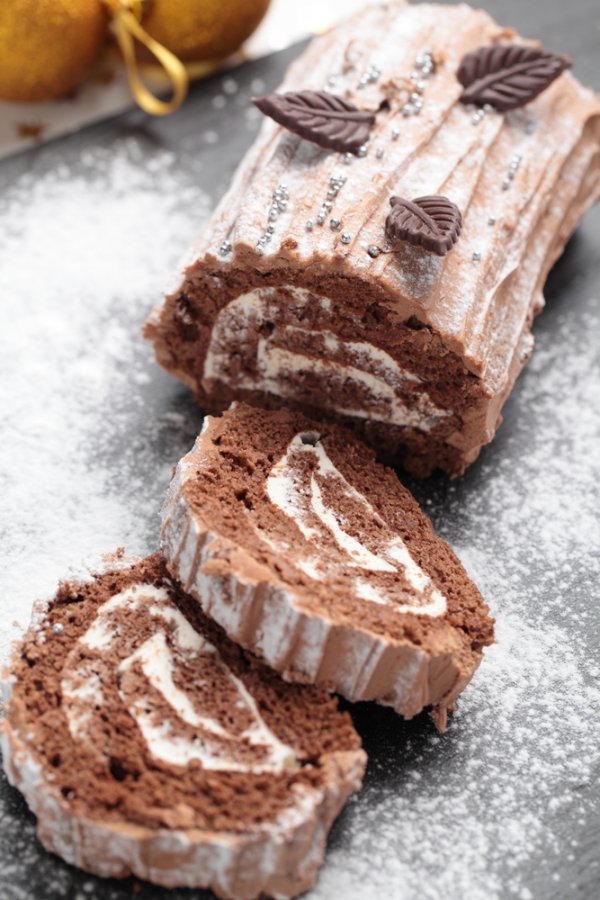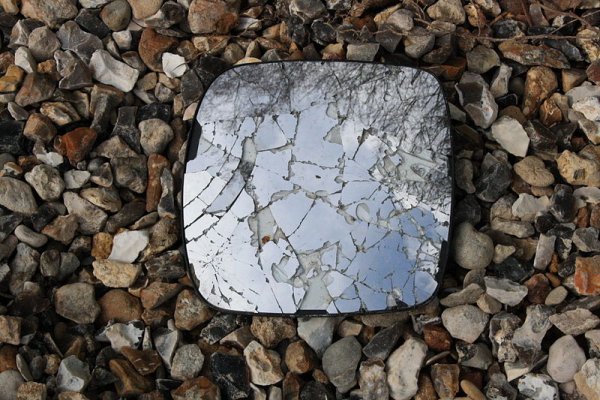Culture and Society: Superstitions and Folklore
General
Superstitions reflect the cultural heritage and history of a country, and nowhere is this better exemplified than in France. Each region—the agricultural province of Normandy, seafaring Brittany, the Vosges, Lorraine, Ardennes, and Perigord—has its own remnants of the past, its particular legends or locally influenced versions of more universal superstitions. Modern France ranks among the top ten countries in the world in its number of agnostics and atheists. Perhaps this explains why the superstitions still practiced in France today are more secular than religious in nature. Most of the prevalent superstitions of the urban French are common to other parts of the world as well, particularly the United Kingdom. The rural French tend to be more superstitious than their city counterparts.
In ancient times, the isolated and impoverished peasants in the countryside believed in sorcery and magic. France’s modernization, which started in the late 19th century, integrated the whole country into the modern world and brought the urban-based culture to the countryside. Fairs, festivals, and spoken folklore started to disappear as better roads and railways bridged the divide between the urban and rural France. Educational reforms brought the common ideals of national consciousness. Some superstitions survived the modernization of the French people, especially those living away from big cities, and are still observed. These include beliefs surrounding Christmas, death, weddings, pregnancy, numbers, animals, and mirrors, as well as bad and good luck days and actions.
Specific Superstitions
Cats
Cats have been an object of superstition for centuries. The popularity of the domestic house cat as an object of superstition can partially be explained by the traits they share with other members of the feline family. They are independent, willful, and pounce on live prey after silently stalking it. Graceful, the cat climbs trees or leaps from great heights managing to land on its feet. Their eyes glow in the dark. The cat’s mysterious nature lends itself to association with supernatural powers. In the Middle Ages, it was believed cats were in league with the devil, and centuries later, witches were associated with black cats.
France is rich in superstitions based on cats, and different regions have cultivated their own superstitious beliefs. In southern France, black cats called matagots (magical cats), are considered to bring good fortune to their owners when fed well and treated with respect. Owners can show their respect to a matagot by offering the cat a mouthful of their own meal. They also believe that if a young woman inadvertently steps on a cat’s tail, she loses her chance of finding a husband for a whole year. Some believe that the offender will be cursed one year for every cry that came from the cat.
In Normandy, a region in northern France, locals believe that you will have a fatal accident if you make eye contact with a tortoise-shell cat. It is also considered a bad omen if a cat crosses one’s path on the way to a business meeting; in fact, the locals would rather return home than cross paths with a cat. In the Vosges (named after the Vosges mountain range), people believe they will suffer a year of misfortune if they happen upon a cat on New Year’s Day. In Provence, in southeastern France, a cat that is seen playing in the morning signifies a bad-luck day, while a cat seen licking itself is a warning of betrayal.
The belief that a secret told in the presence of a cat is certain to be betrayed is explained by Christian superstitions that cats are seldom seen on Fridays because they depart for Finisterre (the westernmost district of Brittany) to report to the Devil about the things they observed while spying on families during the week. This story stems from the pagan belief that witches send cats as their emissaries to fairies residing in Finisterre. The cats dance with the fairies to forge a stronger alliance between themselves and the witches. A person may tie a red string around his cat’s neck on Friday morning to send wishes to the fairies. If the cat returns without the string, it means the fairies will grant the wishes.
In ancient times, peasants let black cats loose in an intersection where five roads met, believing that cats could help them find buried treasures. The black cat would surely lead them to the right location if they followed its tracks.
Pirates had their own superstitions about cats. Despite their usefulness in catching mice in the ship, cats were not welcomed onboard. These outlaws thoroughly inspected their vessels before setting out to sea because throwing a cat overboard in the middle of the sea would bring about enormous storms and other misfortunes. If stuck with unwanted stowaways, pirates tried their best to make them behave, believing that cats’ mewing could invoke disasters. In Brittany (northwest of France), if a cat was found on board before a trip, the expedition was cancelled altogether because the ship had already been jinxed.
It is bad luck to chase a cat away or for a cat to abandon its owner, because death will then befall the household. In ancient times, it was considered dangerous to cross a river while carrying a cat. To counteract these superstitions, one had to make the sign of the cross. It is good luck if a cat walks towards a person and bad luck if it walks away as the person approaches. A popular superstition that France shares with many other countries is the belief that bad luck will follow if a black cat crosses one’s path.
Bûche de Noël or Yule Log
Several French provinces, most prominently Provence, have long been observing the tradition of lighting the Bûche de Noël (Yule log) on Christmas Eve. Families form processions inside their homes carrying a four-foot log while singing a traditional Christmas song. The log is laid on the hearth, where the youngest family member pours wine on it while uttering some prayers. The log is then set on fire. The charcoal of the burned log is believed to have some healing powers.
The Yule log tradition is a derivative of the ancient pagan fire festival of the winter solstice. It is the winter equivalent of the Midsummer bonfire, but occurs indoors. The burning Yule log must be extinguished on the Twelfth Night, the eve of the Epiphany.
In Ardennes (northeast of France), there was superstitious worship of the log associated with the belief that the Virgin Mary would sit on the log carrying the infant Jesus. It is believed that an ordinary person who sat on the log would be afflicted with boils and children with scabies, which could only be cured if the person finds a bramble branch rooted to the ground at both ends and passes under it nine times.
The French kept the remains of the log under their bed to protect the house from fire and thunder and the family members from heel sores during the winter. The log was also dipped into the water that cattle and cows drink to help cure maladies and to help calving. The ashes of the burnt log might be scattered in a wheat field to prevent mildew from growing.
In Perigord (northern part of the Aquitaine region), the Yule log is made from large cherry, oak, or plum trees because local farmers believe the bigger the log the better it burns, which is taken as a good omen for the harvest season. The more sparks formed when nudging the burning log, the more chickens the hennery will produce. The burned wood and its ashes are applied to swollen glands. Ashes wrapped in white linen pouches prevent accidents inside the house. The remaining unburned part of the log is used to protect chickens from evil spirits and as a plow wedge because it allows the seeds to grow better.
In the Middle Ages, fiefs were rewarded if tenants supplied their landlords annually with a Yule log. In places such as Vosges, residents wore chips of the log as a talisman against lightning striking.
With furnaces replacing wood burning hearths, the early pagan tradition of burning the Yule log on Christmas Eve to ensure good luck in the coming year has adapted to modern times. There may be different regional names for the Yule log, but families all over France share the same traditional dessert on Christmas Eve, the Bûche de Noël (Yule log). This flourless chocolate cake is rolled with whipped cream and assembled in the shape of a log with beautiful decorations including chocolate/coffee frosting, meringue mushrooms, confectioners' sugar- to resemble snow on a Yule log- and fresh holly. This sweet derivation of the Yule log is hoped to ensure the same good luck.
Friday the 13th
The fear of Friday the 13th is quite prevalent in France. This superstition is a variation of fear of the number 13. It is believed that the only people immune to this superstition are those born on that day- or those who win the French national lottery’s super-jackpot Friday the 13th draw!
In buildings, it is not common to find a 13th floor, and airplanes do not have a 13th aisle. People also avoid seating 13 at a table. As a workaround to this superstition, an empty chair is customarily added for the non-existent 14th person or what is referred to as l’invite fantome (phantom guest).
The superstition seems to have originated from the belief that it was Friday when Eve tempted Adam to eat the forbidden fruit, when the great flood washed down civilization during Noah’s time, when the Tower of Babel collapsed, and when Christ was crucified. Twelve was a lucky number for Christians, while 13 was considered evil. Thirteen people attended the Last Supper- Christ and the 12 apostles. It was also believed that a dozen witches met with the Devil, the 13th person, on this day.
The French relate more to the arrest of Jaques de Molay, the Grand Master of the Knights Templar, and his 60 knights on October 13, 1307- a Friday, as their origin of the superstition. All the knights of this Christian military order were arrested, tortured, and executed on this day. The remaining followers of the Knights Templar thus declared Friday the 13th as a day of evil and misfortune.
Walking Under Ladders
It is a popular belief that it is bad luck to walk under a ladder. Some people identify a ladder leaning against a wall with the gallows, a structure used in medieval times to hang criminals, and walking under it subjected them to an unfavorable fate as well. Others say that the triangle formed by the ladder resembles the Holy Trinity and the great Pyramids of Egypt, and walking under the ladder is an act of trespassing.
Some French believe that spitting at the ladder three times or crossing one’s fingers until a dog is seen will undo the bad luck. Others say that you should continue walking but only after spitting on your shoes, which should not be looked at until the spit has dried up. Another option to reverse bad luck is to retrace your steps backward from the ladder while wishing that the curse be undone.
Breaking a Mirror
Before mirrors were invented, people believed surfaces that showed their reflections were magical objects able to tell the future. Water surfaces were observed for glimpses of the future or for messages from heaven. The water could not be disturbed because it was likened to setting one’s future into chaos. Thus, applying similar rationale, a mirror must not be broken.
In the past, glass was also a valuable and expensive commodity, and its importation, along with the equally costly spices from French colonies worldwide, usually took seven years. Hence, the origin of the belief that seven years of bad luck befalls anyone who breaks a mirror.
There are also those who believe that the image in the mirror is the person’s soul; thus, breaking a mirror is synonymous with breaking one’s spirit. One must bury the fragments in the ground under the light of the moon to undo the spell. Unlike human beings, vampires do not see their reflection in the mirror, as they are believed to have no souls.
In related superstitions, women who wish to see their future husbands comb their tresses in front of the mirror while eating apples. Couples who "meet in the mirror" (those who happen to see each other for the first time through their reflections) can hope for an ideal marriage. Finally, one is dissuaded from looking at the mirror while holding up a lit candle for fear that he might see the image of Bloody Mary.
Other Superstitions
Actions
- The towels or bandages used on a sick person must be disposed of properly to prevent witches from casting their spells on the sick person.
- The French cross their fingers or knock on wood after revealing plans that they do not want the evil spirits to thwart.
- Opening umbrellas inside the house is bad luck.
- Breaking white glass will bring good luck, with each fragment representing one year of good fortune.
- Sneezing while tying your shoes is bad luck.
- Passing brooms when the sun goes down is bad luck.
- Putting seven stalks of wheat inside a car prevents accidents.
- Lighting a third cigarette with the same matchstick is an omen of bad luck for the third smoker. This superstition is believed to have originated during World War I among soldiers in the field. The first light would alert the enemy of their position, the second would allow time to aim, and the third soldier illuminated by the match would be shot.
- A sailor or fisherman dies if a candle is used to light a cigarette instead of a match.
- Carrying salt on travels invites bad luck and accidents.
- It is bad luck for actors to wear green onstage or mention the word corde (rope) backstage.
- Sending an actor a white flower before a performance will jinx him.
- If a person laughs on a Friday, he will end up crying on Sunday.
- When eating outside the house, crossing kitchen utensils such as knives, spoons, and forks with one another helps repel evil spirits. It is bad luck to cross utensils indoors.
- People who shake hands with their left hands are evil, because it is believed that witches greet the Devil with the left hand.
Animals
- If an owl flies near a house, sickness will come to the household.
- A swallow nesting on the roof of a house must not be disturbed so that the household will be rewarded with good fortune.
- It is good luck to find a spider in the evening, and bad luck to find one in the morning. In ancient times in northeastern France, a cow shed for sale would fetch a higher price if there were lots of cobwebs inside.
- To bring a lost heifer (young cow) back safely, women in Sologne (north-central France) tossed three pennies and offered prayers to St. Hubert, the patron saint of hunters, mathematicians, metalworkers, and opticians.
- Stepping on dog excrement with the left foot is good luck.
- Disturbing a ladybug and watching it fly is good luck, with each dot on its back representing a month of good fortune.
- A wolf’s gaze can cause a person to lose his voice.
- A wolf’s tooth is a talisman for anything that a child fears at night.
- Shoes made of wolf skin make children brave and strong.
- Lightning will strike robbers of wren nests.
- It is bad luck to come across magpies, which total to an odd number, during travel.
- A hen that sounds like a rooster is bad luck.
Food
- Turning a loaf of bread upside-down on a table will invoke a visit from an ancient executioner. Handing a loaf of bread turned upside-down to someone is like handing him a death sentence.
Funerals and Death
- The mirrors are covered with curtains when someone dies in the household to avoid the dead person’s ghosts from returning.
- Offering of chrysanthemums and other pink flowers is an omen of death because the message these flowers bring means one shall not be forgotten.
- In ancient times, newborn babies who died beside their mother in bed were carried out of the house through the window. A dead infant carried out through the door meant that the mother would only lie beside dead children.
Lucky Charms
- Four-leaf clovers and rabbit’s feet are lucky charms.
- Hanging a horseshoe above the door protects people from evil spirits and witches.
Marriage and Weddings
- If a cat sneezes at a bride, she will enjoy a happy marriage.
- With the bride’s shoe in his hand, the groom taps the bride’s head to signify his authority.
- In medieval times, a groom would place his shoe on top of the bride’s foot and sit on it to show his role as the master of the household.
- Brides sew a penny into the hem of their wedding dress to bring prosperity.
- Newlywed couples are presented with a sachet of sugar for a sweet marriage.
- Whoever gets up first from kneeling during the wedding shall become the dominant spouse.
- A person who wishes to know their future spouse should stand up in front of his bed on the last night of February, and at the stroke of midnight, pace three steps forward while uttering, "Good day March, from March to March, let me see in my sleep the marriage partner I’ll get in my life." The person then moves three steps backward and expects his future spouse to appear in his dream.
- A woman who wishes to know her future husband wakes up before the break of dawn on May 1st and proceeds to a well or spring carrying with her a pail she has cleaned with a rosemary stick. She then scoops water from the spring after saying a prayer and drives the stick into a nearby bush. As the daylight breaks, she shakes the water inside the pail with her left hand while reciting an incantation nine times. As the water steadies, the face of her future husband will appear on the surface.
- When the groom gives the bride her ring, he must not push the ring beyond the second joint of her finger and must allow the bride to push past this joint to prevent impotence.
- During the ceremony, the bridesmaid and the best man tap the groom’s and bride’s heels with the handle of a knife to eliminate jealousy in the marriage.
- Couples fast before the wedding so that they will not bear mute children.
- Couples put salt in their left pockets before going to church to prevent impotence.
- Knives should not be given as presents to newlywed couples, or they will live a chaotic marriage. To break the spell, ask the couple for some change- to trick the evil spirits into thinking that the knives were bought or pawned off and are not gifts.
- The "wedding toast" was believed to have originated from a French tradition in which a piece of toasted bread was placed at the bottom of the wine-filled drinking glasses of the newlyweds, and whoever drank faster and got to the toast first would become the master of the household.
- During the Middle Ages, newlywed couples had to kiss over a pile of spiced cakes without touching them for good luck.
Mythical Creatures
- The Dracs is a river monster that can transform into a man and drag victims to the river, where they are eaten.
Nature
- Seeing a rainbow, the symbol of wealth, brings good luck.
- Singing invokes bad weather.
- Owning an opal is considered bad luck.
- On the surface of the moon, the "man in the moon" can be traced carrying a bundle of sticks on his back. According to French superstitions, this man is either Judas Iscariot, the betrayer of Christ; Isaac on his way to Mount Moriah about to be sacrificed to God by his father Abraham; or Cain offering a bundle of thorns to God.
Pregnancy and Childbirth
- In southern France, it is believed that if a leaf falls out of the bowl while a woman is tossing a salad, she will become pregnant the following year.
- In Marsillargues (southern France) and Landes (southwestern France), women wear their husband’s hats inside out for easy labor. In Lorraine, women even put on their husband’s clothes for easy labor.
Special Days
- People in the Vosges Mountains believe that barn animals speak in the language of Christians on Christmas Eve until noon the next day foretelling the future. The locals, however, avoid eavesdropping on these animals unless they want to know the day on which they are going to die.
- On Trinity Day, a day when Christians honor the belief in one God, people get up early in the morning to watch the rising of three suns.
- On St. John’s Feast Day (June 24), which coincides with the summer solstice, people come out early in the morning to see the sun dance.
- Herbs gathered on the eve of St. John’s Feast Day carry special healing powers.
- Firebrands are burned on the fields and on the streets on the first and second Sundays of Lent to prevent spinsterhood for the women.
- On Halloween (October 31), "Death" is believed to come out at midnight playing his violin to lure the dead to dance.
- Church bells are brought from Rome on Good Friday and are returned on Easter, dropping Easter Eggs along the way for the children to find.
Vanity
- Haircuts must only be performed at the time of a new moon to avoid baldness. The hair must be disposed of properly, because witches might use it to cast their spells on the person.
- An ancient French superstition suggests that every time a person washes, he loses a part of his life essence.
Copyright © 1993—2025 World Trade Press. All rights reserved.

 France
France 





